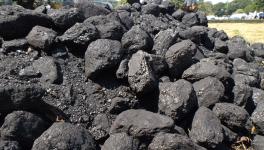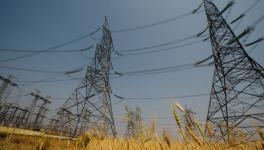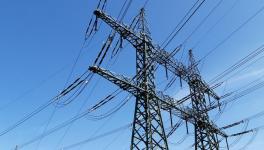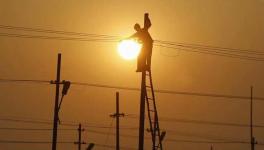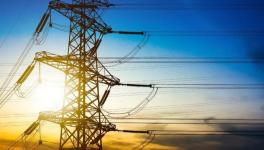Power Engineers' Body Wants Centre to Withdraw Directive to Gencos for Coal Imports
New Delhi: All India Power Engineers Federation (AIPEF) has urged the Central government to withdraw its direction to states' gencos to import coal amid the shortage of dry fuel, crippling electricity generation in the country.
"Correct determination of GCV (Gross Calorific Value) is critical to avoid overcharging and over-billing. The government of India while instructing state discoms to import coal has apparently ignored the factor that most of the state gencos/thermal stations have no past experience in coal imports, particularly regarding the procedures for coal quality determination at the loading point," AIPEF (All India Power Engineers Federation) said in a statement.
It explained that these state gencos (power generation companies) have been thus exposed to the risk of overcharging, fudging of GCV values and, having no past experience, would not be able to deal with these matters effectively.
Power engineers (AIPEF) demanded withdrawal of the central government direction to state gencos to import coal, the statement said.
In case states are forced to import coal, the Centre should bear the extra burden (of coal imports), it said and sought the intervention of all the states' chief ministers.
On April 28, the Union power ministry asked state gencos to import 10% of their total coal requirement to tackle the shortage of the domestic fuel.
In a letter sent to Union power minister R K Singh, AIPEF chairman Shailendra Dubey said that if states are forced to import coal then the central government must bear the additional burden of imported coal so that already financially distressed discoms (power distribution companies) and ultimately the common consumer are not over-burdened.
AIPEF has also appealed to chief ministers of all states and Union Territories to take up the issue with the Centre with top most priority.
AIPEF letter said that the present crisis is the result of the policy failure of the Centre and lack of coordination between different ministries.
The letter said the present coal shortage is the combined result of a number of policy errors of the central government, and shortage was made worse due to scarcity of railway wagons.
The decision of the central government to take away the accumulated revenues of CIL (Coal India) of Rs 35,000 crore in 2016 crippled the development of new mines and capacity expansion of existing mines.
Had this surplus been ploughed back into the coal mine sector, the present shortage would not have occurred, it stated.
Keeping the post of Coal India CMD vacant for a year after the term of the incumbent ended showed that the central government was responsible for coal shortage and the additional charges on account of imported coal are payable by the central government and must not be loaded on states as the policy errors were of the Centre, the letter said.
Also, the additional imports must be made available to states at the prevailing CIL rates while the difference should be payable by the Union government, it said.
The power ministry's direction dated April 28, 2022 that seeks to put the financial load of coal imports on the states must be withdrawn as states cannot be penalised for policy lapses of the Centre, it argued.
AIPEF chairman said since most/all of the thermal stations envisaged, designed and constructed over the past decades on the basis of domestic coal from linked mines, there was no arrangement for blending of domestic fuel with the imported coal.
"The risk of temperature variations in boilers due to uneven mixing would increase incidents of boiler tube leakage. The business of coal is a sellers' market where the terms and conditions are made to suit the seller/exporters, particularly in GCV determination. There is no solution if the GCV tested at the thermal plant is lower as compared to the shipping port value," Dubey said.
AIPEF letter said that the state-owned thermal stations are planned and constructed only after obtaining the clearance of railways ministry to move coal from the linked mines to these units.
At this stage it would be unfair to burden the states for the high cost of import of coal when wagon shortage was one factor responsible for prevailing coal shortage, it stated.
The AIPEF, citing the railways ministry data, said that while the daily requirement of wagons for movement of coal is 441 rakes, the availability/placement is only 405 rakes per day.
From 2017-18 to 2021-22 the railways have placed orders for wagons on an average 10,400 wagons per year. For the same period, there was a pendency of up to 23,592 wagons per year, for which the orders have been placed but the wagons not supplied, it stated.
Dubey said that in the past, the process of coal import has been the subject of corruption and malpractices.
"There are recorded instances of over-invoicing of imported coal and in fudging of coal testing/GCV determination at the port of loading. These cases were taken up by the Department of Revenue intelligence (DRI) which is under the finance ministry.
"The DRI pursued these cases before the Bombay High Court and then before the Supreme Court. These cases taken up by DRI deserve to be taken to the logical conclusion. When the government of India is stressing on coal imports, the deterrent measures to prevent fudging and over-charging are nowhere in evidence," he added.
Get the latest reports & analysis with people's perspective on Protests, movements & deep analytical videos, discussions of the current affairs in your Telegram app. Subscribe to NewsClick's Telegram channel & get Real-Time updates on stories, as they get published on our website.









